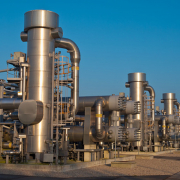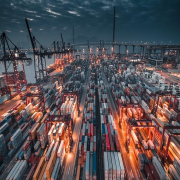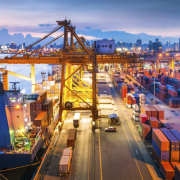South Africa must priorities decarbonization, as $1.5bn of exports to EU are at risk
South Africa should priorities its decarbonization strategy, as it has a carbon intensity much higher than most countries, and $1.5-billion of exports to the European Union (EU) are at risk in the short term.
That figure is likely to increase when more products are covered under the EU’s Carbon Border Adjustment Mechanism (CBAM), said policy development research institution Trade and Industrial Policies Strategies (TIPS).
The EU is one of South Africa’s major export destinations, accounting for 19% of its total exports in 2019. The CBAM is a carbon border tax on embedded greenhouse-gas (GHG) emissions of carbon-intensive products imported into the EU.
The CBAM will mirror and function in parallel with the EU Emissions Trading Scheme and is intended to equalize the price of carbon between EU products and imports, thereby ensuring importers face similar conditions to EU manufacturers and that EU climate objectives are not undermined by carbon leakage, TIPS explained.
A transitional period will apply from October 2023 and CBAM will enter into force in 2026. In the transitional period, the burden will be administrative rather than financial, as importers will only report direct GHG emissions embedded in their imports.
Further, the new, provisionally agreed CBAM proposal includes both direct and indirect, such as from electricity consumption, GHG emissions and will be included after 2026. This is a problem for South Africa as the country is heavily reliant on coal-based power generation, which makes it one of the most carbon-intensive exporters, the policy institution said.
“The CBAM will have a negative impact on South Africa, along with other countries in the Global South. Carbon-intensive exports to the EU will become increasingly costly, owing to added carbon pricing and, therefore, increasingly uncompetitive. Companies from non-EU countries will have to proactively prepare for the CBAM and align their business models to a low-carbon future,” TIPS researchers Valentia Monaisa and Seutame Maimele said.
AT-RISK INDUSTRIES
South Africa‘s iron and steel, and aluminum industries are particularly at risk. Similarly, the organic chemicals and plastics industries are also in jeopardy, although their inclusion in the CBAM is still to be confirmed after the transitional period.
The risk for chemical fertilizers as well as cement is marginal, as the EU accounts for less than 1% of South African exports for both sectors, the institution said.
“Iron and steel exports face significant risk. About 26% in value of products included in the CBAM are exported to the EU, and iron and steel exports covered by the CBAM accounted for 4% of total South African exports in 2021.”
Further, aluminum production, particularly primary aluminum, is highly energy intensive. The export risk is also high as about 25% of the products covered in the CBAM are exported to the EU. Aluminium exports covered by the CBAM accounted for 1% of total South African exports in 2021.
Additionally, the organic chemicals sector’s exposure to the CBAM is high, as about 30% in value of the products covered by the CBAM were exported to the EU in 2021. Organic chemicals exports covered by the CBAM accounted for 1% of total South African exports in 2021.
The largest contributors to GHG emissions in the sector are ammonia production and nitric acid production. South Africa’s chemicals and pharmaceutical products exports are also more carbon-intensive than most other countries, the TIPS policy brief noted.
Further, the exposure of plastic exports to the CBAM is high, as about 10% in value of the products covered by the CBAM were exported to the EU in 2021. Plastics exports covered by the CBAM accounted for 1% of South Africa’s total exports in 2021.
The carbon intensity of South Africa’s rubber and plastics products is also comparatively highly carbon intensive, the researchers highlighted.
Publication date: 02.03.2023
Published on: Engineering news


 The East African
The East African Mmegi online
Mmegi online
 African News
African News Devdiscourse
Devdiscourse
 All Africa
All Africa IMF
IMF